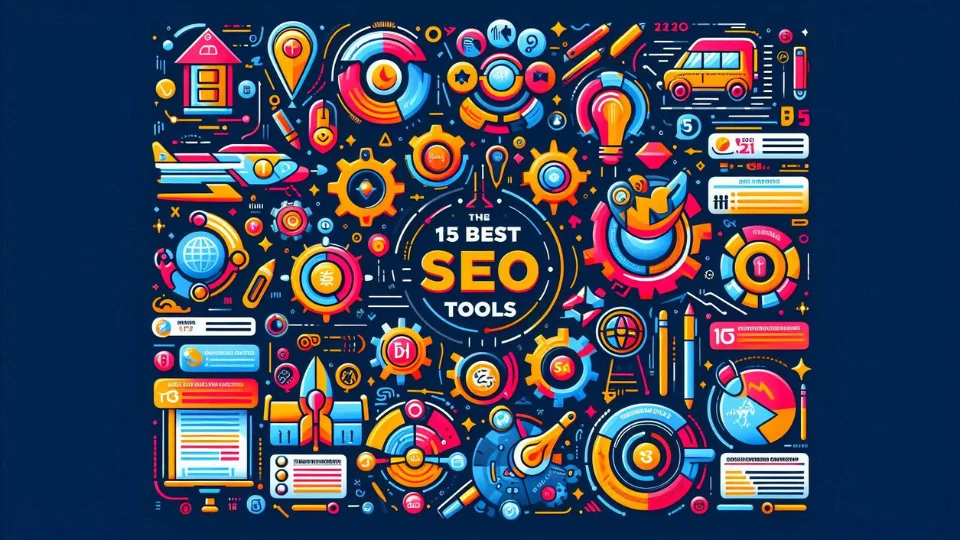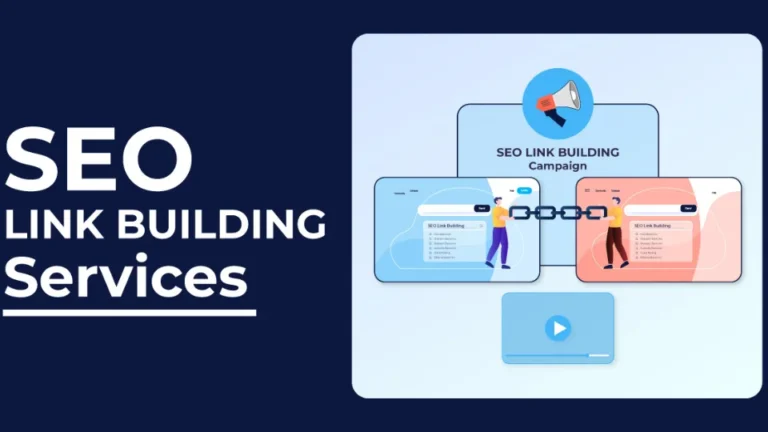15 Best SEO Tools for 2025: Boost Your Rankings the Smart Way
In the fast-changing world of digital marketing, staying ahead in search engine optimization (SEO) is more crucial than ever. With Google’s algorithms evolving and competition growing, having the right tools can mean the difference between ranking on page one or getting lost in the noise. Whether you’re a solo blogger, agency, or enterprise marketer, the best SEO tools of 2025 can help you analyze, optimize, and dominate search rankings.
In this guide, we’ve reviewed the top 15 SEO tools you should be using in 2025. From keyword research and backlink analysis to technical audits and content optimization—these tools cover it all.
Why SEO Tools Matter in 2025

SEO is more than just keywords—it’s about understanding user intent, optimizing site performance, analyzing competition, and tracking success. SEO tools streamline these processes, saving time and improving results.
Key Benefits of Using SEO Tools:

- Automate complex tasks like site audits and link tracking
- Uncover keyword opportunities with high search volume
- Monitor competitors and reverse-engineer their strategies
- Improve content to match search intent and boost rankings
- Track performance metrics like traffic, rankings, and CTR
Top 15 SEO Tools for 2025 (Ranked & Reviewed)

Here’s our handpicked list of the best SEO tools for 2025 based on features, usability, accuracy, and overall value.
1. Ahrefs
Best for: Backlink analysis and competitor research
Features:
- Site Explorer for detailed backlink data
- Keyword Explorer for traffic potential
- Rank Tracker and Content Explorer
Pros:
- Massive backlink database
- Accurate keyword metrics
Cons: - Steep learning curve
- Premium pricing
2. SEMrush
Best for: All-in-one SEO suite
Features:
- Keyword Magic Tool
- Competitive research
- Site Audit and Position Tracking
Pros:
- Comprehensive toolset
- Strong PPC and content tools
Cons: - Interface can feel cluttered
- Some tools limited in lower tiers
3. Google Search Console
Best for: Site performance insights
Features:
- Track clicks, impressions, CTR
- Monitor index coverage and site issues
- Submit sitemaps
Pros:
- Free and accurate data
- Direct from Google
Cons: - Limited keyword research
- No competitor tracking
4. Surfer SEO
Best for: Content optimization
Features:
- Real-time content scoring
- NLP-based keyword suggestions
- SERP analysis
Pros:
- Easy to use
- Great for on-page SEO
Cons: - Limited off-page features
5. Moz Pro
Best for: Beginner-friendly SEO analytics
Features:
- Keyword Explorer
- Link Explorer
- Rank Tracking
Pros:
- Clean interface
- MozBar browser extension
Cons: - Smaller link index than Ahrefs
6. Screaming Frog SEO Spider
Best for: Technical site audits
Features:
- Crawl up to 500 URLs for free
- Analyze broken links, redirects, meta data
Pros:
- Great for technical SEO
- Free version available
Cons: - Desktop-based (not cloud)
- Not beginner-friendly
7. Ubersuggest
Best for: Affordable keyword research
Features:
- Keyword ideas
- SEO audit
- Traffic analyzer
Pros:
- Budget-friendly
- Simple interface
Cons: - Data not as deep as premium tools
8. Google Analytics 4
Best for: Traffic and behavior analytics
Features:
- Real-time reporting
- User journey tracking
- Traffic sources and conversions
Pros:
- Essential for performance tracking
- Free
Cons: - Steep learning curve
- Setup can be complex
9. KWFinder by Mangools
Best for: Finding low-competition keywords
Features:
- Keyword difficulty scores
- SERP overview
- Local SEO targeting
Pros:
- Easy-to-use UI
- Accurate keyword data
Cons: - Limited daily lookups
- Lacks advanced features
10. Yoast SEO (for WordPress)
Best for: On-page SEO for content creators
Features:
- Meta tag optimization
- Readability checks
- XML sitemap generation
Pros:
- Great for beginners
- Real-time suggestions
Cons: - Limited to WordPress
- Pro features cost extra
11. Rank Math
Best for: Advanced WordPress SEO
Features:
- Google Schema Markup
- Keyword tracking
- Built-in redirection
Pros:
- Rich feature set
- Free version is powerful
Cons: - Some advanced features may require setup
12. AnswerThePublic
Best for: Understanding search intent
Features:
- Visual keyword question maps
- Content inspiration
- Related phrase discovery
Pros:
- Insightful question data
- Great for content ideation
Cons: - Free version limits searches
13. SpyFu
Best for: Competitor keyword analysis
Features:
- See competitor keywords
- Ad history
- Domain comparison
Pros:
- Valuable for PPC & SEO
- Affordable
Cons: - UI could be improved
14. Majestic
Best for: Link intelligence
Features:
- Trust Flow and Citation Flow
- Backlink history
- Link context
Pros:
- Strong backlink insights
Cons: - Interface is dated
- Lacks other SEO features
15. Clearscope
Best for: Content optimization for higher rankings
Features:
- SEO scoring
- Keyword recommendations
- Real-time editing suggestions
Pros:
- Ideal for content teams
- Clean, intuitive interface
Cons: - Pricey
- Focused on content only
Comparison Table: Best SEO Tools for 2025
| Tool | Best For | Price Range | Key Feature |
|---|---|---|---|
| Ahrefs | Backlink & competitor SEO | $$$ | Deep backlink analysis |
| SEMrush | All-in-one SEO | $$$ | Keyword + PPC tools |
| Google Search Console | Performance tracking | Free | Index + search data |
| Surfer SEO | Content SEO | $$ | On-page optimization |
| Moz Pro | Beginner SEO | $$ | Easy analytics |
| Screaming Frog | Technical audits | Free/$$ | Site crawling |
| Ubersuggest | Budget SEO | $ | Keyword & traffic insights |
| GA4 | Web analytics | Free | User journey tracking |
| KWFinder | Long-tail keywords | $$ | Easy keyword difficulty |
| Yoast SEO | WordPress SEO | Free/$$ | Meta + readability |
Pros and Cons of Using SEO Tools
Pros:
- Saves time on audits and analysis
- Improves search rankings with data-backed decisions
- Uncovers content gaps and keyword opportunities
Cons:
- Steeper learning curves for complex tools
- High costs for premium platforms
- Tools alone won’t fix poor content or UX
FAQ: Common Questions About SEO Tools in 2025
1. Are free SEO tools enough to rank on Google?
Free tools like Google Search Console and Ubersuggest offer great insights, but premium tools provide deeper data and automation, which are essential for scaling.
2. What is the best all-in-one SEO tool for 2025?
SEMrush and Ahrefs continue to lead as all-in-one platforms, offering everything from keyword tracking to technical SEO and content research.
3. Do I need multiple SEO tools?
Yes—most pros use a combination (e.g., Ahrefs for backlinks, Surfer for content, and GA4 for traffic analytics) to cover all aspects of SEO.
4. Which tool is best for beginners?
Moz Pro, Ubersuggest, and Yoast SEO are great for beginners due to their intuitive interfaces and educational content.
Conclusion: Choose the Right SEO Tool for Your Goals
The best SEO tools in 2025 are smarter, faster, and more integrated than ever. Whether you’re optimizing content, tracking rankings, or analyzing backlinks, the right tool can elevate your digital strategy.
Start with your needs—budget, features, and technical comfort—and build a toolkit that drives real results.
Want to get started? Try a free tool like Google Search Console or Ubersuggest, then scale up with premium options like Ahrefs or SEMrush for deeper insights.







